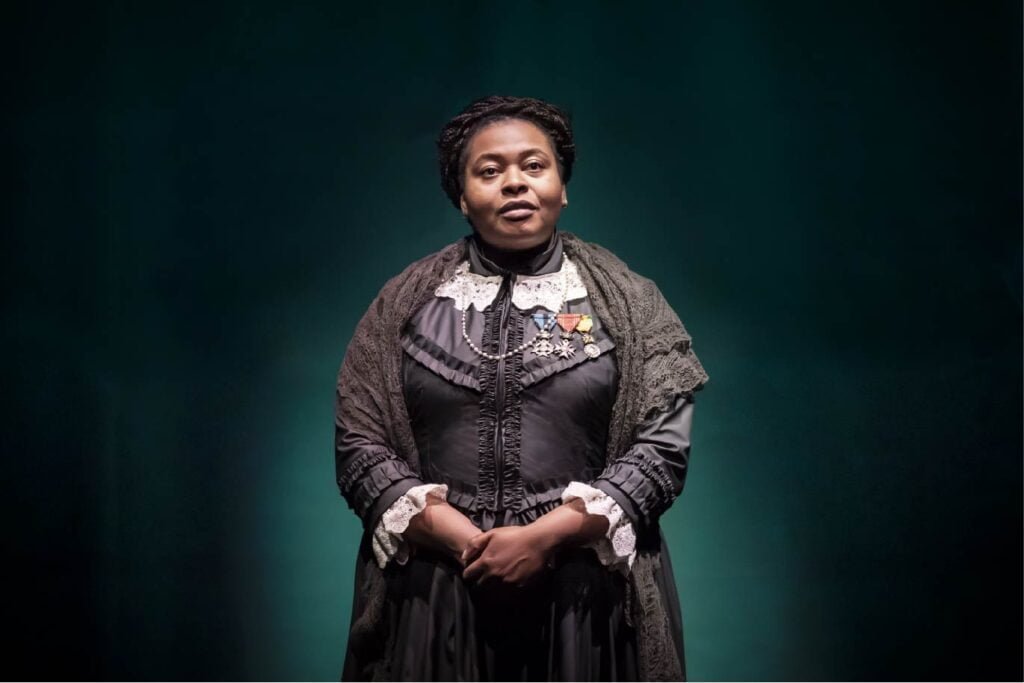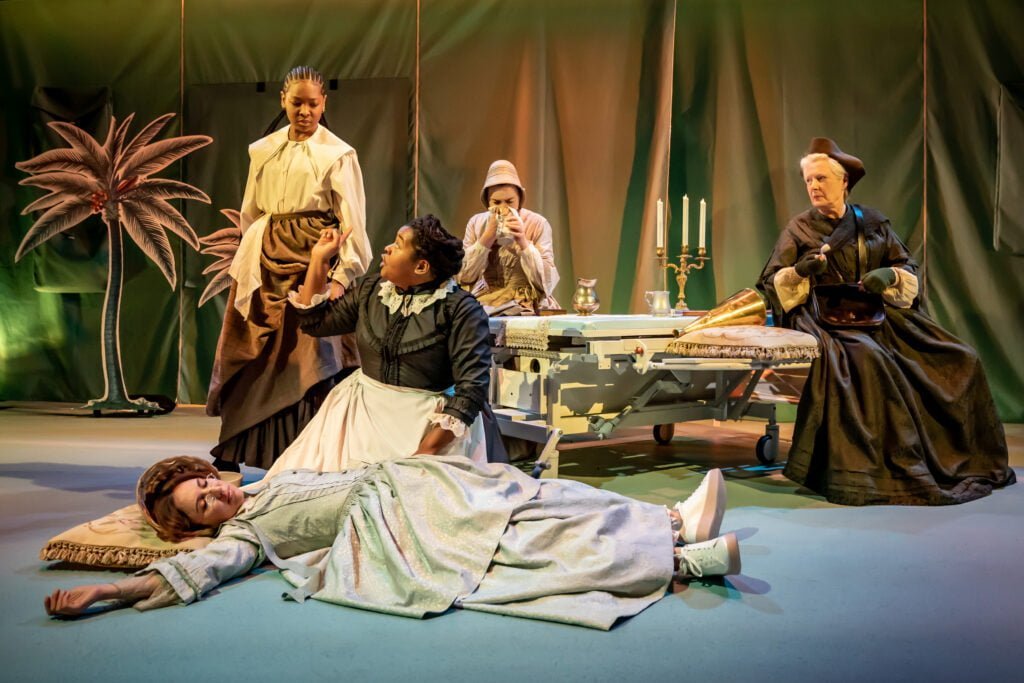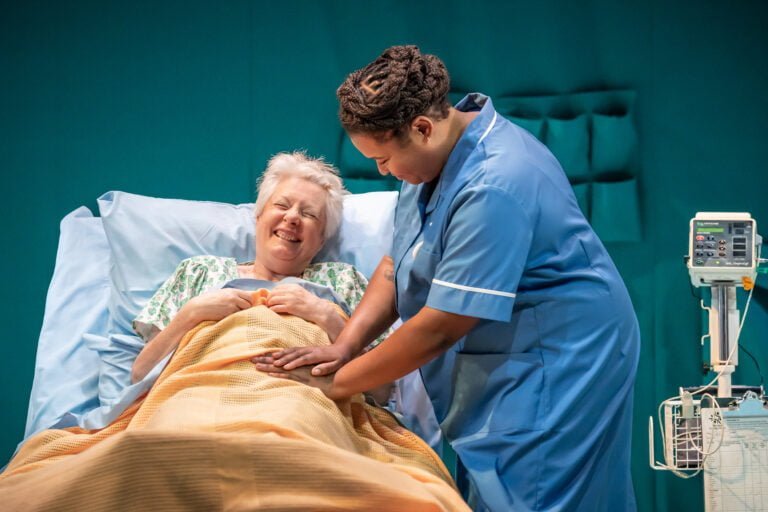The Inheritance of Mary Seacole
“Black people deserve to inherit the earth.”
“What do white people know about merit and work?”
“They need us but they no want us”
Duppy Mary

What is it they say about the road to Hell and good intentions? The Donmar has produced Jackie Sibblies Drury’s play about black women nurses under the title Marys (plural of Mary) Seacole.
I was working in a university when buildings, lecture halls and libraries were being named after the woman from the Crimean War who was from Kingston, Jamaica who cared for the soldiers, Mary Seacole. Honouring her was an attempt to make the black nurses, many of whom came at that point, not from the Caribbean as in the 50s, 60s and 70s but from Nigeria and Ghana and other parts of Africa, feel there was a major nursing historical figure who looked like them.
There has since been controversy about Mary Seacole but I do not wish to go into that here. What this play does is to cut between scenes in Jamaica and the Crimea, with scenes from a NHS hospital today and a playground in an American city where babies and toddlers are being cared for by black employees.
The resulting collage of scenes can be confusing and jumbled as theatre makers attempt the fluidity required by the playwright.

The opening scene is set in Kingston, Jamaica where Mary (the wonderful Kayla Meikle) explains that her mother is Creole and her father is Scottish. She attributes three qualities “energy, vivacity and vitality” to her mix of Creole and Scottish blood. From her mother she has learnt the value of herbs in medicine to treat the outbreak of cholera in 1850s Jamaica.
Off comes the Victorian frock and Mary is wearing a nurse’s blue uniform. Behind is the green canvas of NHS screens, and on the 21st century ward is elderly patient Merry (Susan Wooldridge) being cared for by Mary. Merry has visitors, her stressed daughter May (Olivia Williams) and her disinterested, bored granddaughter Miriam (Esther Smith). The point here is that it is the black nurses Mary and Mamie (Déja J. Bowens) who are required to clean up Merry and change all the bedding after she soils the bed, not her concerned daughter.
A white American mother patronises the Jamaican nannies in a park with her description of ackee breakfast on a luxury holiday to Jamaica. We see Mary Seacole’s application to hugely crinolined Florence Nightingale (Olivia Williams) to assist in the Crimea rejected. However Mary takes herself to the Crimea and sets up a boarding house and uses her healing skills.
Another scene has modern day nurses being trained in the event of a terrorist attack. This role play has sirens, smoke and explosions and merges into a battlefield scene of tailor’s dummies in red military uniform having lost their legs or maybe they were shirt dummies?
Some of this play feels like a devised piece and this chaos places too many demands on the nurses and on the audience.
Mother Seacole makes an impassioned speech for black nurses and black women to be accorded their rightful place and valued but it goes further and turns into a tirade against all white people. This may alienate some Donmar supporters who would count themselves as enemies of all forms of racism, but the woke point is strongly made.

Production Notes
Marys Seacole
Written by Jackie Sibblies Drury
Directed by Nadia Latif
Cast
Starring:
Kayla Meikle
Olivia Williams
Susan Wooldridge
Déja J. Bowens
Llewella Gideon
Esther Smith
Creatives
Director: Nadia Latif
Designer: Tom Scutt
Composer: Tayo Akinbode
Movement: Theo TJ Lowe
Lighting Designer: Jessica Hung Han Yun
Sound Designer and Composer: Xana
Fight Director: Kev McCurdy
Information
Running Time: One hour 45 minutes without an interval
Booking to 4th June 2022
Theatre:
Donmar Warehouse
Earlham Street
Seven Dials
London WC2H 9LX
Tube: Covent Garden/Leicester Square
Reviewed by Lizzie Loveridge
at the Donmar Warehouse
on 22nd April 2022

